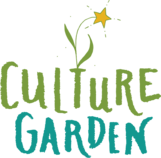How I Came to Culture Garden
When I did my studies as a Somatic Psychotherapist, I felt I’d truly found my vocation. I loved the creative, expressive, and body-informed paradigms I learned to use. And, just as exhilarating was getting to work with people in a 1-1 context. I am an introvert, and was delighted to have finally found a way of working in which I felt comfortable: never distracted by noise or other conversations around me, in which I could listen deeply to my clients, and in which we could listen deeply together to what wanted to unfold in our sessions.
And yet, a small voice in the back of my mind was never fully satisfied. I came to psychotherapy because of my encounters with intergenerational and community-wide trauma, in my own culture of origin as well as in the Northern Indigenous community I lived in. Although during my training I came to understand that there are important aspects of trauma which require the attuned space of individual psychotherapy to heal, my curiosity kept being drawn back to the collective dynamics at play. I could not find a way of languaging, understanding, or working with these forces, but they kept on calling to me, even once my private practice began.
I created a training programme, Body-Informed Leadership, in which I explored these questions directly. At the same time, I started to become interested in groups in a broader sense. My studies in neurobiology and human development had shown me how powerfully our human capacities and temperament are shaped by the relational dynamics we encounter and engage in throughout our lifespan. We humans are not ‘plug and play;’ rather, we are in a constant state of inventing ourselves along with the world and beings around us. I knew that, in order to better understand health and disorder in our collective bodies – and to find intervention points for change – I would have to engage with the phenomenon of group culture.
But I didn’t have to like it. As I said, I’m an introvert and groups are not my happy place. I don’t know that I would have been able to make the leap from being a comfortable psychotherapist to an uncomfortable-yet-captivated leadership and collaboration consultant had two things not happened. The first thing was the enthusiasm of my husband James (if you know him, you will understand that his enthusiasm is an unstoppable force of nature). James is a community development practitioner and as group-oriented as it gets, and he saw the need for psychologically- and body-informed paradigms in his field of practice right from the day we met. He invited me to co-design and co-facilitate a number of community-based programs back in the early 2010s, which gave me the opportunity to ‘test my legs’ in the group space (they were wobbly, I assure you).
“I experienced the depth of collaboration and creativity that was unleashed ... an unshakeable internal reference point for what we are capable of in our groups. ”
The second thing that happened was that, in 2016 I was invited to support a large socially-engaged charity in its transition to shared governance. This experience opened my eyes to what gets stirred up in a group when the game radically changes; what internal skillsets are needed to navigate uncertainty and emergence; and, what becomes possible when a group reorients around a governance structure designed to foster collective intelligence, complexity, and the redistribution of power. I experienced the depth of collaboration and creativity that was unleashed, and it gave me an unshakeable internal reference point for what we are – given the right context and supports – capable of in our groups.
Since then, I have had the opportunity to work with many organisations and communities, of all shapes and sizes. Each one has brought its own history, capacities, strengths, and shortfalls. I have come to love the process of working with culture: playing with the interplay between structure and emergence, past and future, skill and weakness, hope and heartbreak. I work with gifted colleagues who each bring their own specialized understandings, and together we create experiments to shift groups’ ways of being and doing together, to help them to strategise and sense into the emergent future, and to develop the skills, habits and practices that we know contribute to greater success and wellbeing.
It’s not always easy work, but in the midst of it all I can always find hope – the belief, deep down, that we humans are capable of something magnificent. Why else would we keep returning, day by day, to our collaborations? We may try to be autonomous, to move in a friction-free way throughout our days, and yet the fact remains that if we want to create something meaningful – whether it’s a business, a community, or a social movement – we must do it together. We need each other, and although it might take time I believe we are designing and experimenting our way towards cultures that bring out and enhance the brilliance we have to offer.
Visit out Team page to learn more about our Culture Garden team.

